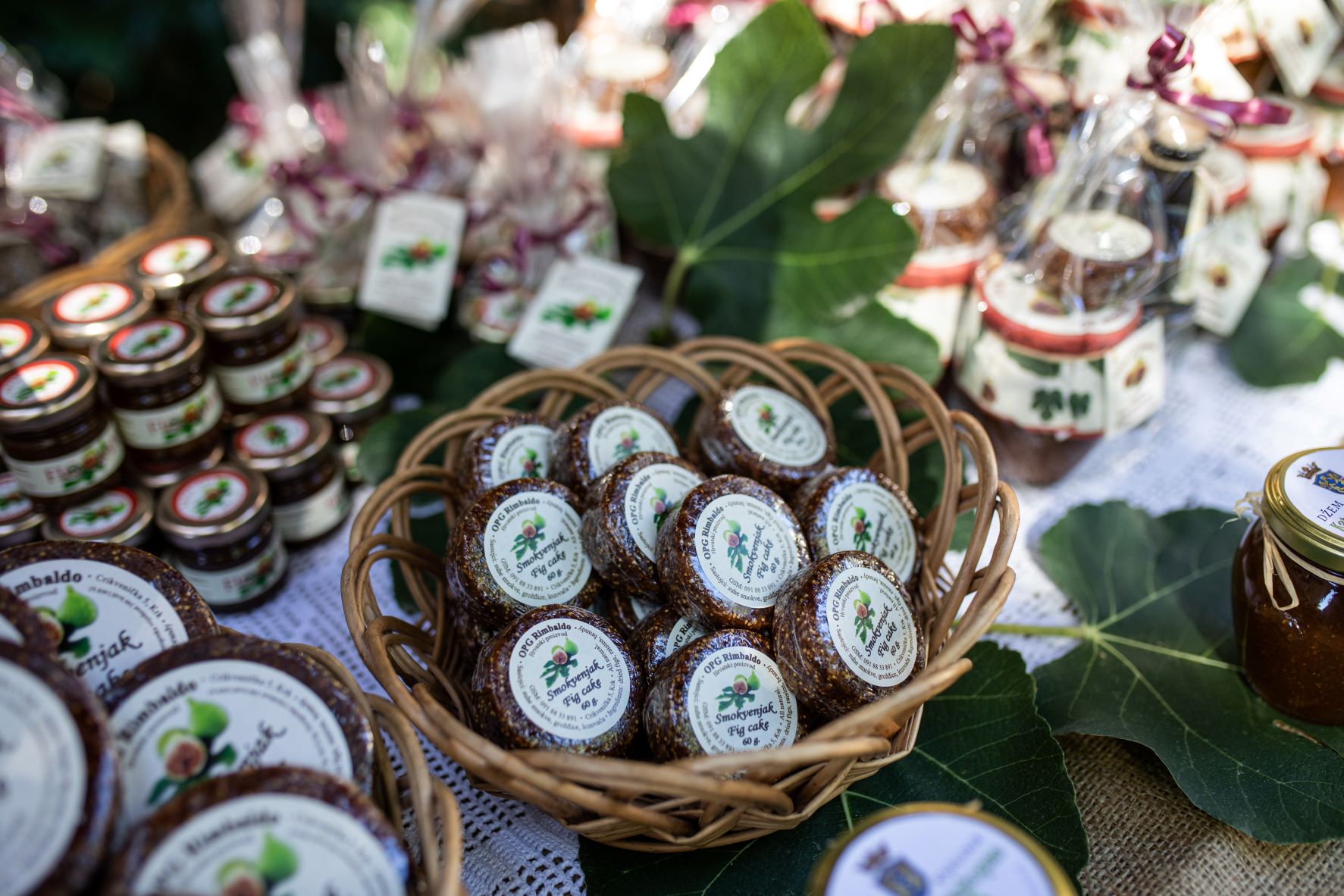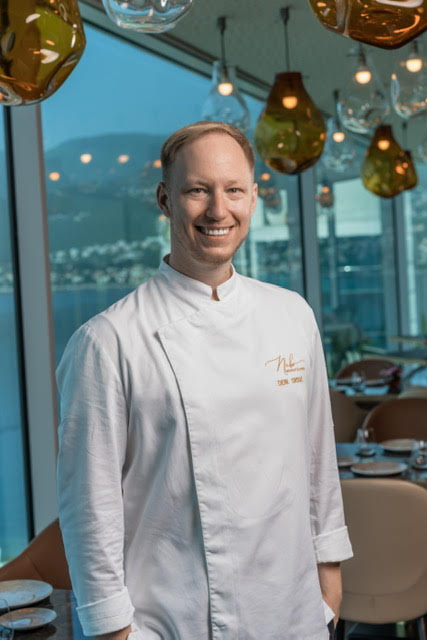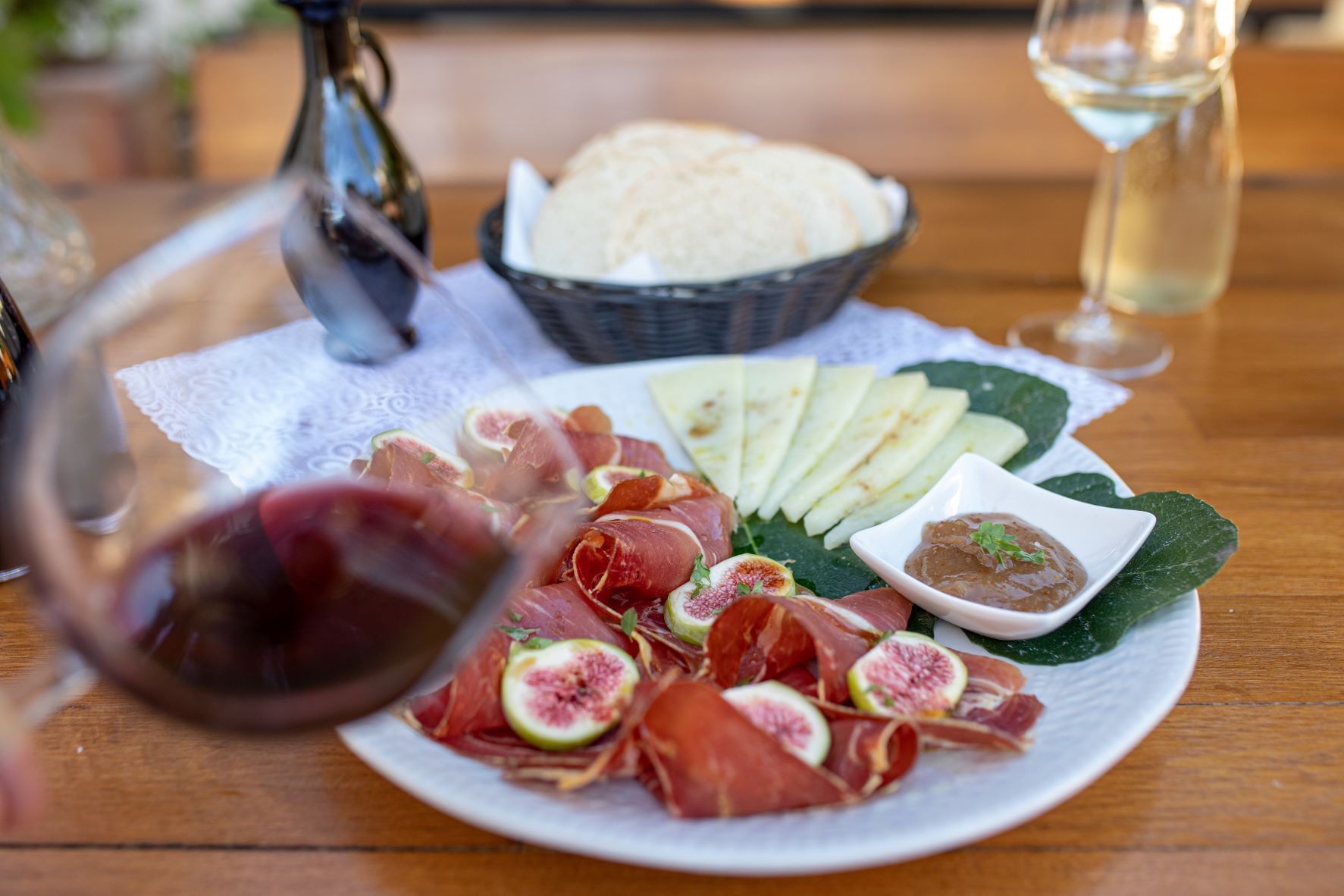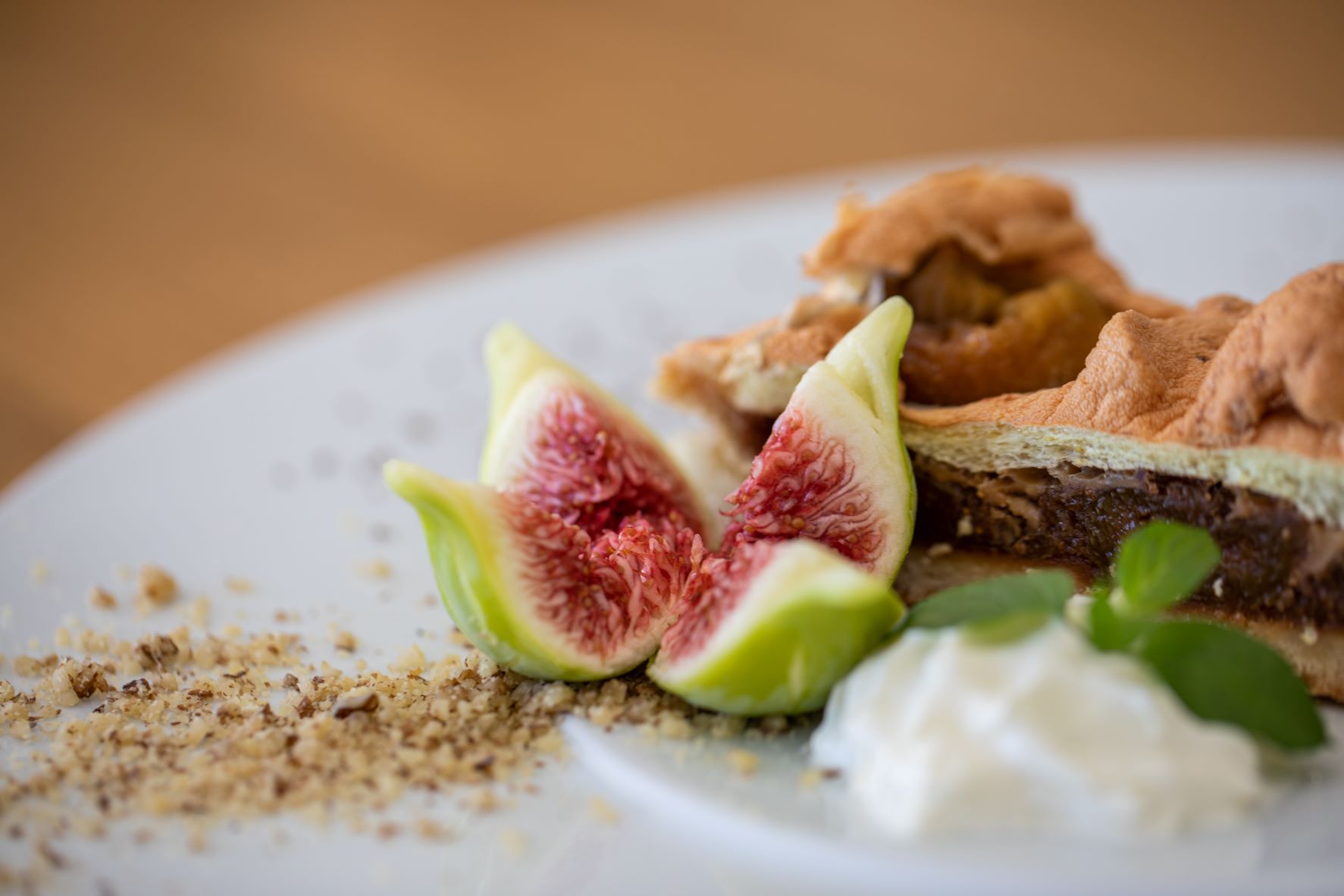City of Krk Achieved A Million Nights in Commercial Accomodation
September 18, 2021 - Yesterday, in the city of Krk, 1,014,259 overnight stays in commercial accommodation were achieved for this year's period (01.01 - 16.09.2021), which is as much as 83% of the record year 2019, and 54% more overnight stays compared to 2020 in the same period.
As reported by HrTurizam today, when it comes to commercial accommodation in the city of Krk, most overnight stays were realized in camps with 459,012 overnight stays, 61% more than in the same period last year, and this realization accounted for 84% of overnight stays compared to the same period in 2019, followed by 441,055 overnight stays in households. 38% more compared to the same period last year and 86% of overnight stays in 2019, and hotels with 94,121 overnight stays, which is even 138% more compared to the same period last year and 68% of overnight stays in 2019.
"In this year's extremely demanding working conditions, I congratulate all representatives of the tourism sector, tourism workers, on the enormous effort this season, responsible approach, and excellent results", said Ivana Kovačić, director of the Krk Tourist Board.
In the month of September 2021 (until 16 September), 124,970 overnight stays were realized in commercial accommodation, which is 12% more than in the same period in 2019, and 175% more than last year. All commercial accommodation facilities recorded better results in September than in September 2019.
In September, the highest number of overnight stays was realized in camps, 59,559, which is 169% more than in 2020 and 8% more than in 2019, followed by household facilities with 48,584 overnight stays, which is 149% more than in 2020 and 19 % more than in 2019, while 14,130 overnight stays were realized in hotels, which is 403% more than last year and 6% more compared to the same period in 2019.
Top markets (according to realized overnight stays) are Germany (+ 45% compared to 2020, 94% achieved in 2019), Slovenia (88% compared to 2020, 66% achieved in 2019), Austria (+ 140% compared to to 2020, 84% of 2019,), Croatia (95% of 2020, 95% of 2019), Hungary (+ 88% of 2020, 96% of 2019), Czech Republic (+30 % compared to 2020, + 20% compared to 2019), Italy (+ 50% compared to 2020, 35% achieved in 2019), Poland (+ 16% compared to 2020, + 9% in compared to 2019), the Netherlands (+ 227% compared to 2020, 67% of 2019) and Slovakia (+ 96% compared to 2020, 80% of 2019).
For more, check out our dedicated travel section.
Fig Days on Krk Island: 10-Day Program Officially Begins!
August 28, 2021 - From August 27 until September 5, the city of Krk, on the island of Krk, will host the 15th edition of Fig Days.
Fig Days is a renowned, traditional annual gastro event that this year lasts for ten days, instead of being just a weekend festival, like it was since 2007. It includes an exhibition in the open - of fresh and dried figs - but also a wide variety of products made of figs, like jams, cakes, dry figs, brandies, and liqueurs that will be on display. The festival encourages and motivates caterers, local farmers, producers, and vendors to include the fruit in their offer, promote it, and sell their indigenous product in the streets thus contributing to the gastronomic identity of Krk.

The program of the Fig Days includes a very popular, free of charge distribution of 100 fig seedlings, but also interesting lectures on the topic of figs by the foremost expert on figs, Željko Prgomet, doc.dr.sc., and Iva Prgomet, Ph.D., as well as a book promotion. There will also be workshops on making clay figs, felting figs from Krk sheep wool, and individual counseling on fig growing.

Fig, we all know (and some of us adore it), is a tear-shaped fruit with a green skin that may ripen toward purple or brown, with sweet soft reddish flesh containing numerous crunchy seeds. It is, we are also aware, both delicious and healthy, but you might want to know, and you will learn about it if you come to Krk, that it is native to the Ficus carica, small tree species in the mulberry family, and that it has been cultivated since ancient times. It is, of course, the most widespread, and highly valued fruit of the Mediterranean (and Asia), but is now widely grown throughout the world.

On the island of Krk, the figs have been grown for centuries, but have also been wrongfully neglected in recent times. Figs can be eaten fresh or dried or processed into jam, rolls, biscuits, and other types of desserts. Since the ripe fruit does not transport and keep well, most commercial production is in dried and processed forms. Raw figs contain roughly 80% water and 20% carbohydrates, with negligible protein, fat, and micronutrient content. They are a moderate source of dietary fiber. But what can an excellent chef make from, of, and with figs? Crazy and most delicious dishes, for sure!

To mark the 15th anniversary of the project, on Monday, August 30, a special gala dinner will be held in the Marina Blue restaurant of the Marina hotel in Krk. It will be a fine dining event, a real gourmet experience provided by a young but highly esteemed and Michelin star awarded chef Deni Srdoč, supported by Spart Jazz Duo. The fig themed dinner “Fig by Deni Srdoč” will give everybody a brand new perspective on figs, and, besides the dishes - it will serve fantastic wines from Kvarner: sparkling and still, all produced locally by the winemakers of the region who most recently united in Kvarner Wines Association.

The menu consists of the most delicious dishes – like beef tartar with hollandaise sauce, focaccia toast, chives emulsion, and pickled figs, accompanied by sparkling wine Plovanić. The first course will be followed by marinated hake, fennel salad, beetroot, orange and fig sauce, and spirulina mayonnaise accompanied by Žlahtina Sveta Lucija of the Estate Winery Katunar, recently awarded Bronze Decanter in London. Next, risotto with wild mushrooms and fig reduction will be on the menu, together with excellent rosé Trojišćina by Ivica Dobrinčić of Šipun winery. The main course will, of course, be a lamb dish – namely - confit lamb glazed with figs, potato espuma, sauteed vegetables, and lamb jus. Kuća vina Ivan Katunar winery produces the exquisite Sansigot wine from the eponymous wine variety originating from Susak island, and saved by the winemakers of Vrbnik, Kuća vina Ivan Katunar, specifically.

For the ones with a sweet tooth, chocolate terrine, vanilla cream, hazelnut crumble and figs flambé will make a beautiful end to this fig story, or rather – a fairytale, with Misno vino (Žlahitna variety) by Gospoja winery to wash it down. The most interesting for the tourists, however, is a special restaurant offer in the Krk city area for the whole time of the festival, all with the common theme: fig(s).

During “Fig Days” – 15 restaurants, bistros, wine, and food bars, and “konobas” in the area will be serving delicious dishes with figs. You might want to try steak in shrimps and fig sauce with a side dish of homemade pasta šurlice with shrimps and figs sauce…Or, fish fillet with apricots and dried figs in prosecco; pork loin in fig sauce; mouth-watering dried figs in mascarpone and cinnamon cream with pie crust, crepes, and crostatas with homemade fig jam… Indeed, all things edible that you can imagine made out of figs or with them will be on offer for you to savour in Krk, so why don’t you come and have fun at the very end of summer, or just take it as a sort of a prelude to the upcoming autumn days?
More about the project at https://www.tz-krk.hr/en/15th-fig-days-city-of-krk
For more on lifestyle in Croatia, follow TCN's dedicated page.
Krk Island Presents Virtual Tour of Croatian Camino Route
April 18, 2020 - From April 21-26, experience the Camino Krk route through your computers, mobile phones, or tablets thanks to a virtual tour provided by the Krk Tourist Board.
HRTurizam writes that Camino Krk is a great new tourist product as well as a motive for arrivals in the pre and post-season. It is an event commemorating the Croatian Camino Route following the medieval pilgrimage routes on the island of Krk. The Camino Krk themed route also joined the European network of St. James pilgrimage routes, and created the preconditions for the development of pilgrimage and religious tourism on the island.
However, since we are all in isolation at the moment and as tourism has literally stopped, the Tourist Board decided to organize a virtual Camino Krk that brings the experience of the Way of St. James directly to everyone's homes.
Although it is difficult to connect the island of Krk with the famous 'Camino' pilgrimage at first, it is further proof that there are hundreds of phenomenal and authentic stories in Croatia that we need to put together, brand and tell. It is this content that we are chronically missing.
So, how does the island connect with the Camino de Santiago or Way of St. James?
The Camino de Santiago or Way of St. James is a network of pilgrimage routes leading to the Spanish Sanctuary of Santiago de Compostela - the last resting place of St. James the Apostle, patron saint of pilgrims and travelers. From northern Norway and the Baltic countries, signposts lead to Santiago de Compostela, with over 320,000 people traversing the Franco-Spanish section of the route as long as 800 kilometers each year. In 1987, the Council of Europe awarded Camino the longest street in Europe, while in 1993, UNESCO declared its Spanish and French parts a World Heritage Site. Although the network of Camino routes stretches across Europe, Croatia was almost the only European country that, despite its rich pilgrimage tradition, until recently had no route to Santiago.
In Croatia since 1203, the Fraternity of St. James organized pilgrims who then walked from Croatia to Santiago de Compostela and back. The present-day Brotherhood of St. James, based in Samobor, inherits this tradition. They are a member of the St. James in Santiago de Compostela, the central institution that brings together the associations and fraternities of St. James from all over the world. They publish the Croatian pilgrimage passport - Credentil, officially accepted as a pilgrimage certificate with which in Santiago de Compostela, a diploma of completed pilgrimage is obtained.
Last October, at the initiative of the Krk Tourist Board and the Brotherhood of St. James, medieval Krk pilgrim routes were marked as a Croatian contribution to the European network of pilgrim routes of St. James.
Camino Week on Krk is a project that lays the foundations for the development of pilgrimage and religious tourism in order to extend the season and develop tourism following the principles of sustainability and preservation of tradition.
As the first in a series of Croatian Camino routes, Krk proved to be an ideal choice. The island, which, due to its natural and material treasure, rightly prides itself on the epitome of Croatian history and culture, is an ideal backdrop for a spiritual journey, thanks to its old castles and churches, abandoned villages, small medieval towns and beautiful beaches. It is not disingenuous to say that the interior of the island gives the impression of an outdoor cathedral.
"The situation that has spread around the entire world has made it impossible for much of the planned activities, including the holding of the second Camino Week. We have therefore decided to provide the interested audience with a part of the experience with the help of digital tools and hold a Virtual Camino Krk Week, which will be available on our Facebook pages. At the moment, most everyone is spending time in isolation and quarantine, and digital media in the true sense has become their only window into the world. Perhaps this particular story from the island of Krk will embellish our days," said Natasa Jurina, director of the Krk Tourist Board.
Camino Krk is a circular route Krk - Porat - Omisalj - Dobrinj - Vrbnik - Baska - Kornic which covers the whole island. It is about 107 kilometers long and is advised to walk through using the six-day program. Trails are marked between the cities listed, and one is passed each day. Camino Krk also has its own special sign, which with the recognizable symbol Camino bears the Glagolitic script - the oldest Slavic script specific to Croatia and Krk.
The first Camino Week in Krk was held in October 2019, and at the end of April, the second guided tour of the Camino Krk route was to take place.
As this is not possible now, the Krk Tourist Board decided to approach part of this experience virtually. Over the course of six days, you can experience part of the Camino experience virtually through:
- multimedia story for every single day through pictures, video, voice-over, music
- an online photo exhibition with Camino de Santiago with different subjects
- interactive description of daily routes
- attractions and descriptions of individual places, natural and cultural sights along the route
- testimonies of pilgrims who passed Camino Krk
- the messages and thoughts of the day about what can be learned on the Camino
The tour will also include e-stamps, or an e-passport for pilgrims, and at the end of the six-day virtual tour, all "travelers" will receive an e-Composel, while the original Compostela will be able to be picked up at the Krk Tourist Board live when possible.
"This is a new experience for all of us, we are doing it for the first time, and we apologize in advance if the production is not flawless due to the short preparation time. However, we have a strong desire to provide you with some of the experience you have been deprived of because of the current situation and we want to do the best we can. Join us and be part of the first virtual Camino Krk adventure. Thank you to everyone who will join and contribute," concludes Natasa Jurina.
The project was designed by the Krk Tourist Board and the digital marketing agency Smartingo.com, and the great news is that all tourist boards on the island of Krk have joined the project: Tourist Board of Omišalj and Njivice, Tourist Board of Malinska, Tourist Board of Baška, Tourist Board of Dobrinj, Tourist Board of Punat, and the Krk Island Tourist Board.
From April 21-26, experience Camino Krk through your computers, mobile phones or tablets on the City of History and Culture's Facebook page.
Find out more about the whole project HERE
To read more about travel in Croatia, follow TCN's dedicated page.


